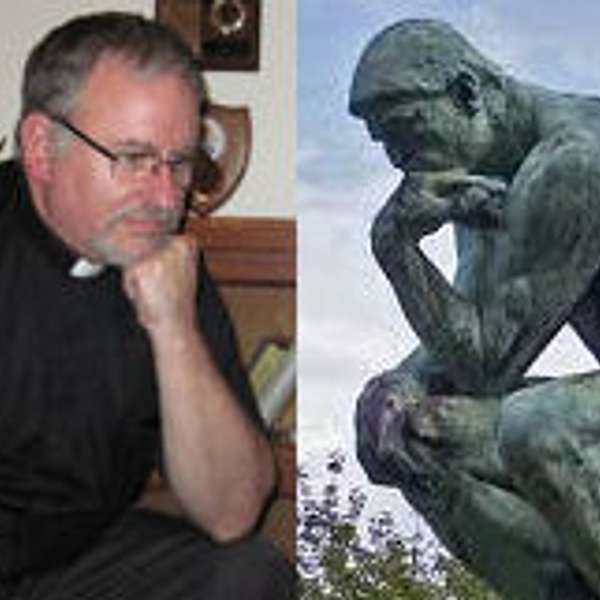
Father Frank's Think Tank
Father Frank's Think Tank
29 June 2025
Use Left/Right to seek, Home/End to jump to start or end. Hold shift to jump forward or backward.
29 June 2025 - Feast of Saints Peter & Paul
Reflect:
This feast day does not fall on Sunday very often. It is always on June 29th, and that means we do not see it every year as a weekend Mass. But, why does this solemnity out rank a Sunday of Ordinary Time?
Well, I think St. Peter and St. Paul are kind of important saints! They are listed as the two who founded the church in Rome. Also, the two basilicas of St. Peter and St. Paul Outside the Walls are two of the major churches in Rome. The other two are St. John Lateran and St. Mary Major. You can actually walk between all four of the major basilicas with ease in a day. Many pilgrims do that, because making a pilgrimage to all four of these basilicas gains you a plenary indulgence if you are ever going to make a trip to Rome.
There are more than nine hundred and thirty churches in Rome! So picking four of them as the primary churches would be kind of hard. But these are the four that we hold up as the main ones.
Nine hundred and thirty plus churches or chapels in Rome? Rather amazing, isn’t it? I think I may have visited as many as… twenty – at most. I know, I’m a neophyte of a Rome traveler. But I think I’ve been there enough.
Apply:
So, why do we celebrate the feast day for Saints Peter and Paul together? They each have their own feast days at other times of the year as well. The obvious point is that St. Peter concluded his work in Rome; and St. Paul was executed in Rome also. St. Paul, being a Roman citizen, had the “privilege” of being executed by the sword. St. Peter, according to legend, was crucified because he was not a Roman citizen. And, according to legend, Peter said he was not worthy to die the same kind of death as Jesus – so he was crucified upside down. Have you ever been in an inversion chair? The blood rushing to the head. I don’t think it was a very fun way to die. Well, any execution would not be fun. And yet how many saints do we celebrate that have been executed? Earlier this week we celebrated the birthday of John the Baptist. We know how his life ended: off with his head.
We could talk about any number of martyrs to the faith. The first ones that come to my mind are Paul Miki and companions in Nagasaki, Japan; or Charles Lwanga and companions in Uganda; or Maximilian Kolbe in Auschwitz. The list of martyrs is very long.
One of the thoughts that came to my mind – returning to St. Paul the Apostle – is: what would the reunion have been like for Saint Stephen and St. Paul after Paul’s execution? I imagine they would have embraced with joy.
Peter and Paul had so much in common, yet their lives were also quite different. Here are a number of parallels that Saint Luke wrote in the Acts of the Apostles: both preached that Jesus was the fulfillment of the covenant with David; both performed indirect healings, as well as direct healings; both had to fight against a magician; both impose the Holy Spirit by laying on of hands; both miraculously escaped from prison; both received a direct commission from Jesus, even though Paul’s commission happened after the Ascension; both were killed in Rome.
So much of what makes up our Catholic faith began with the writings of these two men. In his first letter, St. Peter talks about the saving power of baptism as he compares it to the work God did with Noah. Here is what he wrote: “God patiently waited in the days of Noah during the building of the ark, in which a few persons, eight in all, were saved through water. This prefigured baptism, which saves you now. It is not a removal of dirt from the body but an appeal to God for a clear conscience, through the resurrection of Jesus Christ…”
And in St. Paul’s letter to the Romans, one of his most theological letters – and this quote is one of the most important points he makes – we read the following: “How much more then, since we are now justified by his blood, will we be saved through him from the wrath. Indeed, if, while we were enemies, we were reconciled to God through the death of his Son, how much more, once reconciled, will we be saved by his life.”
I am sure others might pull different sections of writings from both Peter and Paul that would seem to be “the most important point they make.” But for me these are the two that stand out. And these are the reasons why the church honors these two Apostles with a combined feast day. Peter tells us that we have been saved by the action of God in baptism. As Jesus reminds us in John’s Gospel, we have been born anew, or born-again. Paul tells us that this action of God was done while we were still away from God – enemies of God. But God in his great mercies has drawn us close.
This reminds us then that our destiny in Christ is to be… where Christ is! Peter and Paul gave witness by their lives to the reality of God’s choice to make us his children. So we honor these eldest brothers of ours today in a combined feast that is meant to remind us of our destiny.
+++++